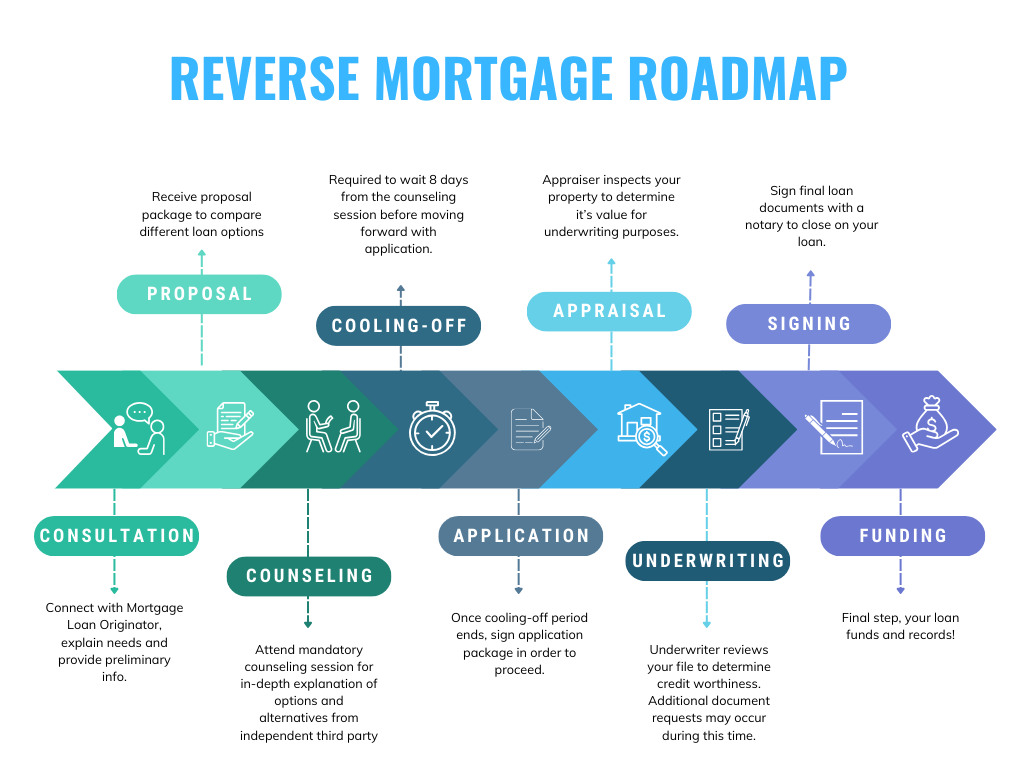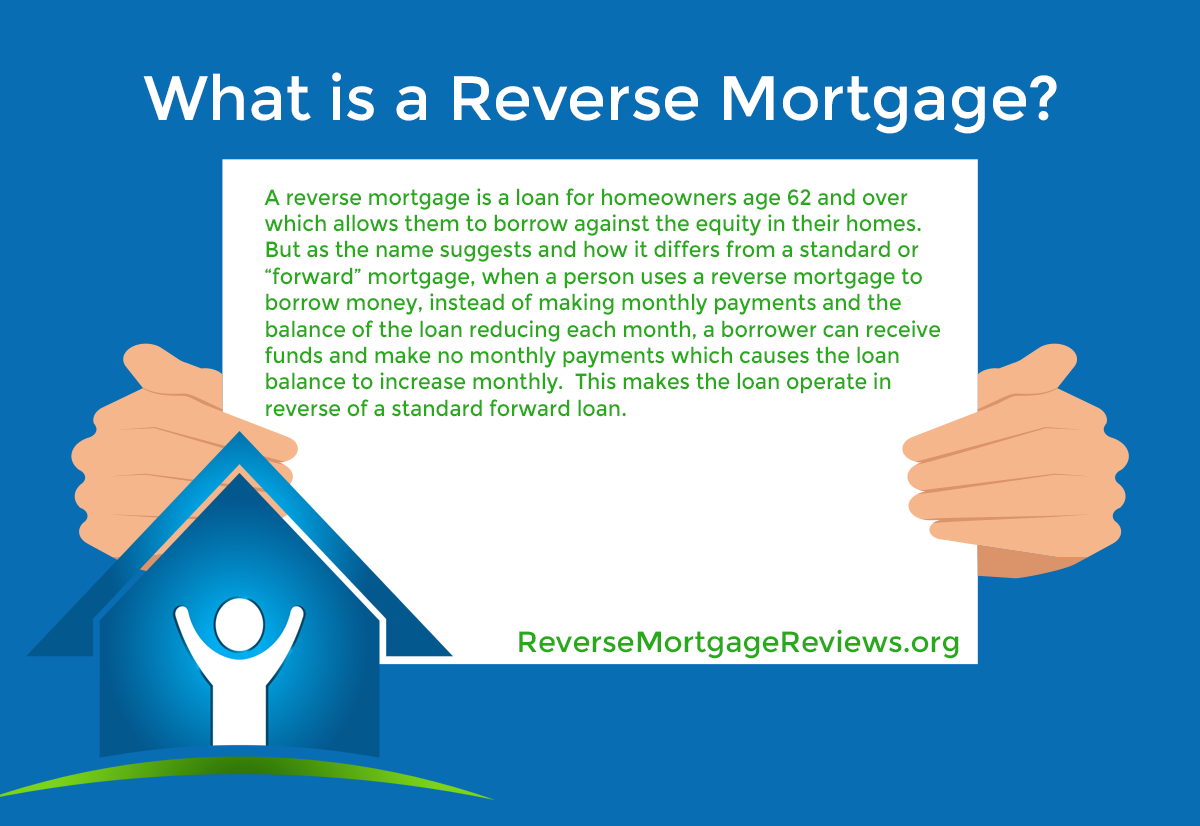Key Factors to Consider Before You Purchase Reverse Mortgage
Key Factors to Consider Before You Purchase Reverse Mortgage
Blog Article
Empower Your Retirement: The Smart Means to Purchase a Reverse Home Loan
As retirement approaches, several people seek efficient strategies to improve their economic freedom and health. Among these techniques, a reverse home loan arises as a practical choice for house owners aged 62 and older, enabling them to use their home equity without the necessity of regular monthly repayments. While this monetary tool uses a number of advantages, including increased cash flow and the prospective to cover important costs, it is important to comprehend the intricacies of the application procedure and key considerations entailed. The following steps might reveal how you can make a knowledgeable choice that can substantially influence your retired life years.
Comprehending Reverse Home Loans
Comprehending reverse home loans can be critical for property owners seeking monetary adaptability in retired life. A reverse home loan is an economic item that allows eligible house owners, typically aged 62 and older, to transform a part of their home equity into cash. Unlike conventional mortgages, where consumers make regular monthly repayments to a lending institution, reverse home loans enable home owners to receive repayments or a round figure while preserving ownership of their property.
The quantity available via a reverse home mortgage depends upon a number of aspects, consisting of the house owner's age, the home's worth, and present rates of interest. Importantly, the financing does not need to be settled up until the property owner offers the home, leaves, or dies.
It is vital for possible consumers to understand the effects of this economic item, consisting of the effect on estate inheritance, tax obligation considerations, and recurring duties related to home maintenance, taxes, and insurance. Additionally, counseling sessions with certified experts are frequently called for to make sure that customers completely comprehend the conditions of the lending. Generally, a thorough understanding of reverse home mortgages can encourage homeowners to make enlightened choices concerning their economic future in retirement.
Benefits of a Reverse Home Mortgage
A reverse home loan supplies numerous engaging benefits for qualified house owners, particularly those in retired life. This monetary tool permits senior citizens to transform a section of their home equity into cash money, giving important funds without the requirement for regular monthly home mortgage settlements. The cash acquired can be used for different purposes, such as covering clinical expenses, making home improvements, or supplementing retirement income, hence boosting overall monetary versatility.
One substantial benefit of a reverse mortgage is that it does not require payment till the house owner moves out, sells the home, or dies - purchase reverse mortgage. This feature enables retirees to preserve their lifestyle and fulfill unforeseen costs without the burden of monthly settlements. Furthermore, the funds obtained are generally tax-free, allowing homeowners to utilize their cash money without concern of tax implications
Moreover, a reverse home mortgage can offer assurance, understanding that it can act as a financial safety net throughout difficult times. Property owners likewise preserve ownership of their homes, ensuring they can continue staying in a familiar setting. Ultimately, a reverse home mortgage can be a critical monetary source, encouraging retirees to handle their funds effectively while appreciating their golden years.
The Application Refine
Navigating the application process for a reverse mortgage is a vital step for house owners considering this financial choice. The first phase includes examining eligibility, which generally requires the homeowner to be at the very least 62 years old, own the residential or commercial property outright or have a low home loan balance, and inhabit the home as their key home.
Once eligibility is validated, house owners must undertake a counseling session with a HUD-approved counselor. This session ensures that they fully comprehend the effects of a reverse home loan, including the duties entailed. purchase reverse mortgage. After finishing counseling, candidates can proceed to gather essential paperwork, including proof of income, assets, and the home's worth
The following step involves sending an application to a lender, who will certainly analyze the financial and property certifications. An assessment of the home will certainly also be carried out to establish its market price. If approved, the loan provider will provide loan terms, which ought to be examined meticulously.
Upon acceptance, the closing process follows, where final papers are authorized, and funds are paid out. Recognizing each stage of this application procedure can significantly enhance the property owner's confidence and decision-making relating to reverse home loans.

Trick Considerations Before Buying
Getting a reverse home loan is a considerable monetary decision that calls for mindful consideration of several key variables. Initially, comprehending your eligibility is crucial. Property owners must go to least 62 years old, and the home has to be their main residence. Reviewing your monetary needs and objectives is similarly important; establish whether a reverse home loan aligns with your lasting plans.

Moreover, examine the influence on your existing way of living. A reverse mortgage can affect your eligibility for certain government benefits, such as Medicaid. Look for professional support. Consulting with an economic advisor or a real estate counselor can provide important understandings tailored to your private scenarios. By extensively reviewing these factors to consider, you can make an extra educated decision about whether a reverse mortgage is the right economic technique for your retirement.
Taking advantage of Your Funds
As soon as you have secured a reverse home mortgage, successfully managing the funds comes to be a concern. The flexibility of a reverse home mortgage imp source allows home owners to use the funds in various means, however strategic preparation is necessary to maximize their advantages.
One essential strategy is to produce a budget that describes your financial objectives and monthly costs. By identifying needed expenses such as health care, building taxes, and home upkeep, you can allocate funds appropriately to ensure long-lasting sustainability. Additionally, think about making use of a portion of the funds for investments that can create income or value over time, such as mutual funds or dividend-paying stocks.
One more vital facet is to keep an Web Site emergency fund. Alloting a get from your reverse mortgage can help cover unforeseen prices, providing peace of mind and economic security. Seek advice from with an economic expert to discover possible tax implications and exactly how to incorporate reverse home mortgage funds right into your total retired life strategy.
Ultimately, prudent administration of reverse home loan funds can boost your economic security, allowing you to enjoy your retirement years without the anxiety of monetary unpredictability. Cautious planning and notified decision-making will ensure that your funds function successfully for you.
Verdict
Finally, a reverse home mortgage provides a feasible monetary technique for seniors looking for to boost their retired life experience. By converting home equity into accessible funds, people can resolve essential expenditures and safe extra financial sources without sustaining regular monthly repayments. Nevertheless, mindful factor to consider of the associated effects and terms is necessary to make best use of benefits. Ultimately, leveraging wikipedia reference this economic tool can promote better freedom and enhance general high quality of life throughout retired life years.
Recognizing reverse mortgages can be vital for property owners looking for economic flexibility in retired life. A reverse home mortgage is a financial product that permits qualified homeowners, normally aged 62 and older, to transform a portion of their home equity into money. Unlike typical mortgages, where customers make regular monthly settlements to a lender, reverse mortgages allow house owners to obtain payments or a lump sum while keeping ownership of their residential or commercial property.
On the whole, a comprehensive understanding of reverse mortgages can empower homeowners to make informed decisions concerning their economic future in retired life.
Seek advice from with a monetary consultant to check out possible tax implications and just how to incorporate reverse home loan funds into your general retirement approach.
Report this page